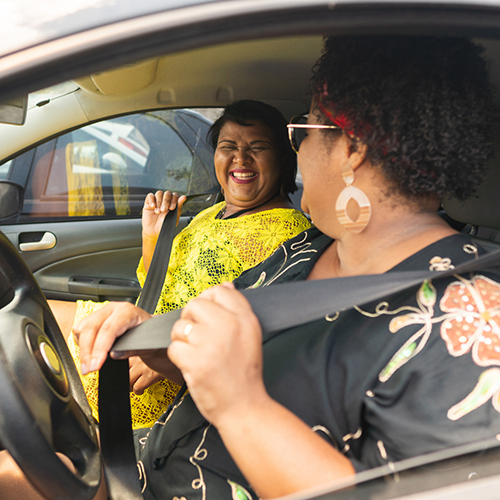Keeping Older Loved Ones Safe on the Road

Teenagers and young adults are known for being a high-risk group for car accidents. They are the youngest drivers on the road and therefore the most inexperienced. However, the oldest drivers on the road are also at risk for car accidents. Although senior citizens have been on the road the longest, driving skills can become impaired with age. According to AAA, older drivers have the same number of injury-related crashes as drivers in their early twenties. Drivers over the age of 85 are injured and killed in car accidents more than any other age group. Read to find out how to tell an elder it's time to stop driving.
How to stay safe on the road
As drivers get older, parts of the body and mind that are crucial for driving begin to deteriorate. Critical skills, such as vision, hearing, and reaction time, aren't as sharp as they once were. With weakened driving skills, seniors are putting themselves and others at risk when they drive. Seniors can take preventative measures to ensure their safety when driving, including a visit to the eye doctor, which can help determine whether it is safe to continue driving.
Busy roadways can be stressful for seniors as they struggle with slower reaction times. This can be minimized by increasing following distance, making fewer left turns, and avoiding high-traffic areas.
Driving courses are offered for seniors to evaluate their driving abilities. AAA and AARP offer a program called "CarFit," which helps senior drivers determine if their car is a good fit for them and identifies issues in the vehicle that may impair the driver. The goal of a CarFit check is to make sure the driver has "maximum comfort and safety." CarFit events are offered locally throughout the country. Check the website to find the time and location of the next CarFit event near you.
Additionally, AAA offers defensive driving courses specifically for drivers over 55. These courses allow seniors to sharpen their driving skills and learn driving techniques in a safe environment.
I don't think my loved one should be driving anymore. What should I do?
The decision to take the keys away from an elderly family member or friend can be difficult. Before you make this decision, look for the warning signs that it's time to hang up the keys. AAA says to look for these warning signs:
- Confusing the gas and brake pedals
- Missing stop signs or stop lights
- Weaving in between lanes
- Getting lost in familiar areas
If you have determined that the best decision is for your loved one to stop driving, it's time to have a talk. It may be difficult for the older driver to understand why he or she cannot drive anymore. Therefore, it is extremely important to be sensitive to his or her situation. Remind your family member that the end of driving isn't the end of independence.
No car? No problem!
Let your family member know that being unable to drive does not mean they will be confined to their home. There are many options provided to senior citizens to be able to safely get around town! Public transportation is a convenient and cost-effective option. New Jersey Transit offers a senior citizen reduced rate on all buses, trains, and light rail. Many communities offer senior ride programs, in which a driver picks up a senior citizen at a designated time and drives them to their destination. This is an excellent way to get to doctor appointments or the grocery store. Carpooling is another option.
The first step to making sure the senior driver in your life is safe is to become informed. Being knowledgeable and proactive will allow all drivers on the road to be safe! Visit seniordriving.aaa.com to learn more.



